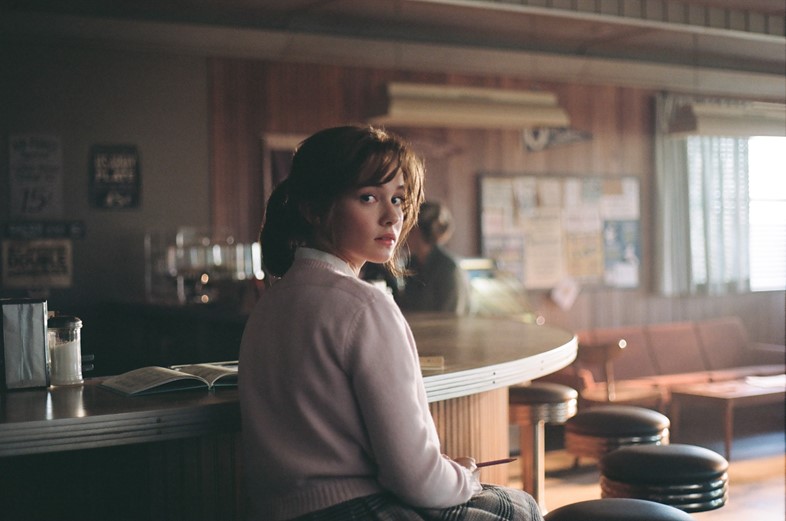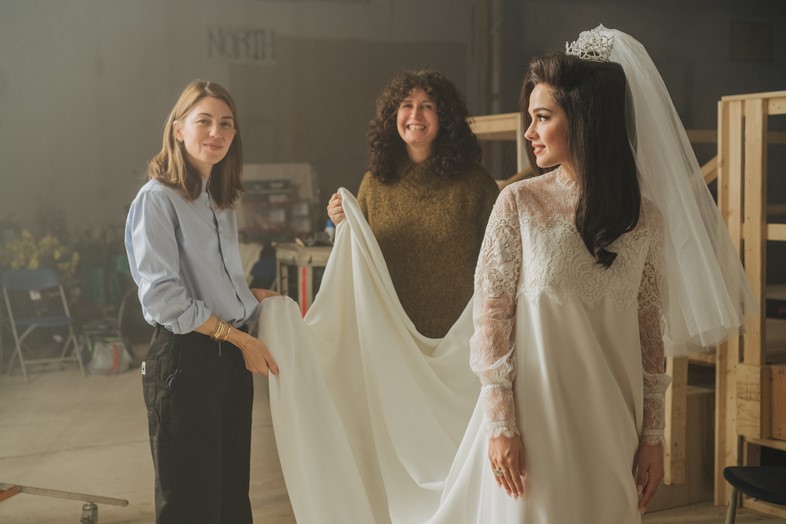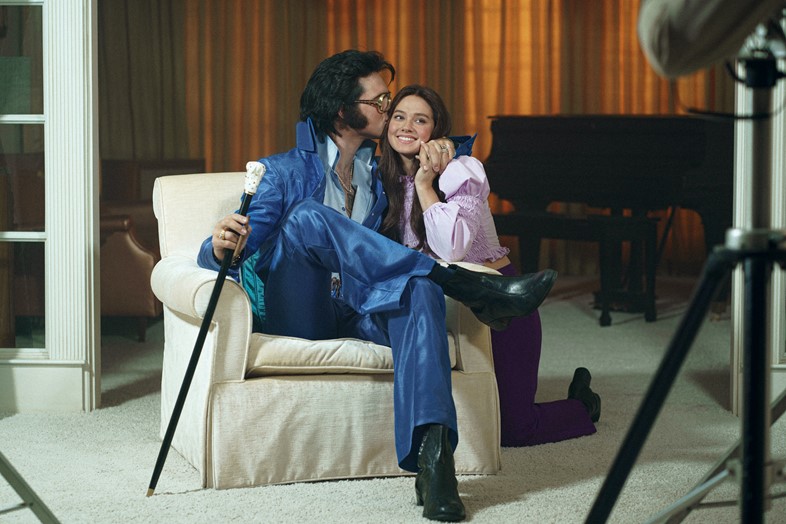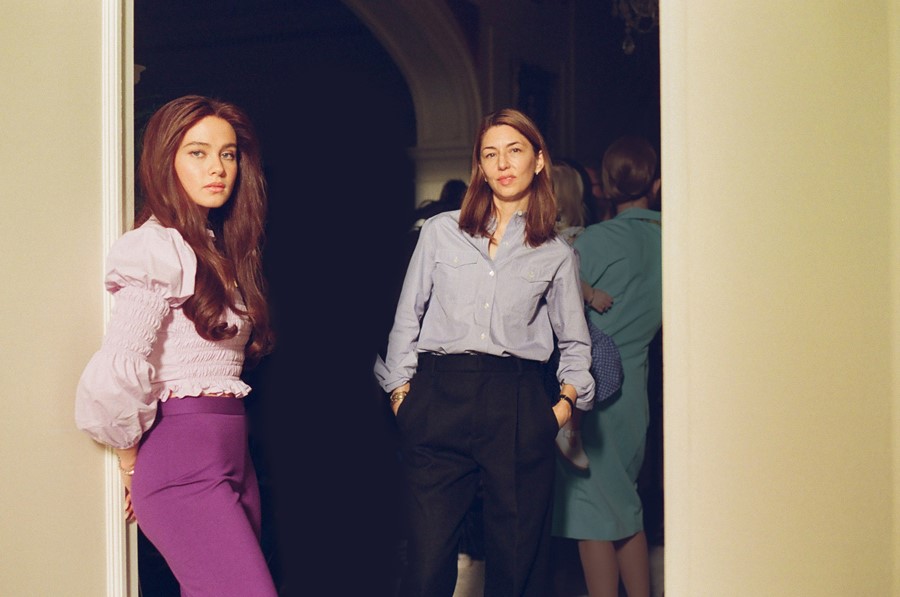We talk to the Mississippi-born star about the ‘mysterious and incredibly moving’ story of Priscilla Presley and her on-set experience of shooting with the acclaimed film director
Finally released in the UK amid waves of speculation and discourse, Sofia Coppola’s Priscilla tells the story of Priscilla Beaulieu who, for a time, became the most envied woman in the world when she married Elvis in 1967. Starring Cailee Spaeny, the film begins with her first fated encounter with Elvis (Jacob Elordi) in 1959 when she was just a starstruck 14-year-old schoolgirl and he, at 24, had already achieved fame on an unprecedented scale. Coppola traces the extraordinary passage of time in Priscilla’s life encompassing their relationship – the early lovelorn years, her eventual move to his fabled home, Graceland, their marriage and, ultimately, their parting of ways 13 years later.
In a statement about the inspiration for the movie, Coppola recalled having read Priscilla’s autobiography Elvis & Me (1985) and musing, “What it would be like to go into Graceland as a child and leave as an adult? I started to think about how you might illustrate that as an impressionistic memory”. What ensues is a dreamy, intoxicating coming-of-age story with all the trappings you might want and expect from a Coppola film, amplified by the bizarre conditions of life inside the [carpeted] walls of Graceland – a monument to midcentury excess and a world-within-a-world revolving entirely around Elvis’ capricious desires.
Just as the eerily serene, hermetically-sealed Tokyo hotel room in Lost in Translation confines and alienates Scarlett Johansson, the luxuriously deep pile-carpeted hallways and glittering boudoirs of Graceland become the stifling, gilded cage in which Priscilla – presumed the luckiest girl in the world – is kept and where she’s expected to ceaselessly perform Elvis’ idea of perfect, docile femininity. In his absence, she’s a doll in a doll’s house, waiting for him to return and play with her.
As such, it’s a story about girlhood, the disembodied female experience and selfhood, complicated by Elvis’ neurosis, his apocalyptic celebrity and the traditional gender dynamics of the era, and gift-wrapped in Coppola’s irresistible aesthetic and her eye for the gorgeous details that form her on-screen worlds.
Born, like Elvis, in Tenessee, Spaeny was raised on Elvis Presley. “In America, Elvis is royalty. But in the South, he’s really the golden boy,” she tells Dazed. Yet, until she was approached about Coppola’s film, she had little knowledge of Priscilla’s life with Elvis or her journey towards self-actualisation. Despite the fantastical circumstances of Priscilla’s story, Spaeny was struck by its relatablity; the experience of being subsumed and defined by a relationship and the struggle to leave. “There’s this universal aspect to it that I think a lot of women have been through in their way,” she explains. “It’s an Alice in Wonderland fantasy whirlwind and Priscilla comes out on the other side and sees things more clearly.”
Below, we chat with Cailee Spaeny about navigating the darker aspects of Priscilla and Elvis’ romance, why there’s a need for “complicated human stories”, and her enduring memories of working with Sofia Coppola.

Oddly, I saw on Instagram that today is the 50th anniversary of Elvis and Priscilla’s divorce, so it’s strangely pertinent for us to be talking about their much-mythologised marriage. I wonder if you could begin by telling us about your perceptions of this very complicated and consuming relationship?
Cailee Spaeny: I grew up with Elvis around me the whole time. My mum was a big Elvis fan and we went to Graceland on family vacations. But when this story was presented to me and I read the book [Elvis & Me], I had no idea about her side of the story. So I think that in itself is fascinating, that she oftentimes gets so overshadowed. I found it mysterious and incredibly moving, that Priscilla found her way into Elvis’ world and then found the strength to leave it.
There are so many things she experienced that none of us can relate to. And then at the same time, there’s this universal aspect to it that I think a lot of women have been through in their way. Whether it’s a man, a career, or anything that they feel like they have to find themselves outside of, they have their own version of what Elvis is to Priscilla.
So we just tried to put the truth on the screen and really stick to the book and what was coming out of Priscilla’s mouth and leave the audience to decide how they felt about it. It’s complicated and nuanced and it sits in a grey area, which I think is something that we don’t see much right now. But I find the most fascinating films leave you asking questions when you leave the theatre.
“I found it mysterious and incredibly moving, that Priscilla found her way into Elvis’ world and then found the strength to leave it” – Cailee Spaeny
You play Priscilla from the age of 14 to 27, so it’s a huge span of her life. As an actor, how did you approach that challenge?
Cailee Spaeny: Yeah, it was one of the most challenging things for me to try to wrap my head around. And it was quite scary. I was 24 when we filmed it, so trying to remember how 14-year-olds hold themselves and what’s your body language when you’re 14, then going into adulthood and becoming a mother.
We only had 30 days to film this whole movie and we shot out of order, so a lot of the time I was using the costume, the hair and the make-up to sort of ground me in those ages. The different costumes informed my movement. Being in a poodle skirt and wearing no make-up felt different to the beehive and little dresses and high heels where you can only move like a doll. And I think she was like a doll to him; she was very aware of how she was with him. And later, when she’s a young mother and she’s got her 70s blowout and she’s in jeans for the first time, then you can loosen up and be more yourself and into your body. So that sort of helped inform how I was going to do that.

Elvis has been immortalised as an objective of pretty much uncritical devotion, but there are aspects of his relationship with Priscilla that people may be shocked by. Can you talk a bit about how the film addresses the darker side of their life together?
Cailee Spaeny: Priscilla went through really dark times with Elvis and it was a shocking and tumultuous relationship. And then, at the same time, she says, ‘That’s the love of my life’ and ‘I had my best memories with him’. He was the father of her daughter, and so it’s complicated. I think that in the time that we’re in, it’s hard to feel like there’s room for complicated human stories but making room for that grey area and raising those questions – to still have love and care for this person who had such a big part in your life, and also understand that there were times in the relationship that were very problematic – needs to be talked about and looked at. I think making room for that kind of story is what we need more of right now.
More ambiguity?
Cailee Spaeny: It’s just how life works, right? So I tried to go into this story and play her without any judgment. I think that was the only way to go about telling this story. And I really wanted Priscilla to feel like she was in safe hands. You know, she’s lived an extraordinary life, she’s been through so much, and she has some family that she’s fiercely protective over. So I just wanted to be delicate and nuanced about it, because I think that’s what Priscilla deserves.

You touched on this already, but I wanted to ask you about how Sofia Coppola builds worlds so effectively in her movies by, among other things, using objects. This film particularly features lots of lingering shots of the tangible details of Priscilla’s life – soft furnishings, clothing, cosmetics, posters on the wall of her teenage bedroom, et cetera.
Cailee Spaeny: It’s such a dream to be able to work with a team who have gone above and beyond in terms of detail. And that’s incredibly important to Sofia. She understands the devil’s in the detail. And, being able to walk into Graceland, that is such a gift as an actor to just embody the environment and feel like you have free rein in the space – even down to the details of her cosmetics and the things that were in Elvis’ room.
Sofia tells these stories like flashes of memories. It’s very impressionistic and you don’t ever hang on a beat or a scene too long until you’re on to the next. It’s sort of like this Alice in Wonderland fantasy whirlwind and Priscilla comes out on the other side and sees things more clearly. And Sofia does that with these photographic moments and beats.
“Sofia tells these stories like flashes of memories... It’s an Alice in Wonderland fantasy whirlwind and Priscilla comes out on the other side and sees things more clearly” – Cailee Spaeny
What are your most enduring memories of working with Sofia on Priscilla?
Cailee Spaeny: It’s always scary to meet your heroes but she exceeded all my expectations. I think one of my favourite parts about working with her and some memories I’ll always be fond of is her using music on set to get everyone in the mood. Obviously, it’s very helpful for me, but also getting the crew involved in a way that you don’t see. With Sofia, she’s so collaborative and takes care of everybody, so then having the music as an element on set when we're filming scenes, everyone just sort of leans in more and elevates the story more.
I don’t know if you know what pickleball is – it’s like giant ping pong – and she made a court and set up what was a very hardcore tournament on set. She just knows when to tune in and focus and then also when to have fun. She makes movie-making a good time, so it was a really special experience.
Priscilla is showing in cinemas throughout the UK.
Join Dazed Club and be part of our world! You get exclusive access to events, parties, festivals and our editors, as well as a free subscription to Dazed for a year. Join for £5/month today.








